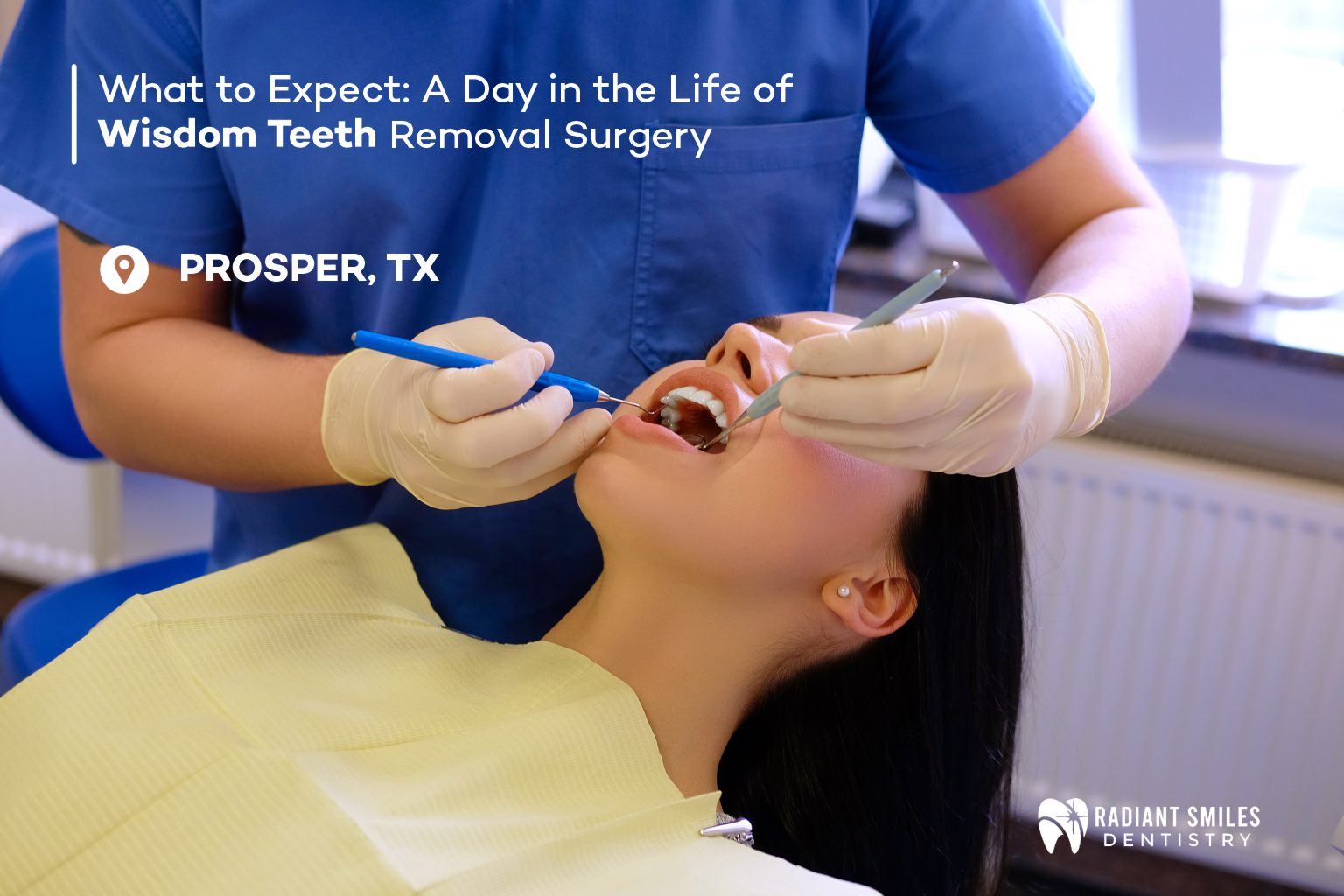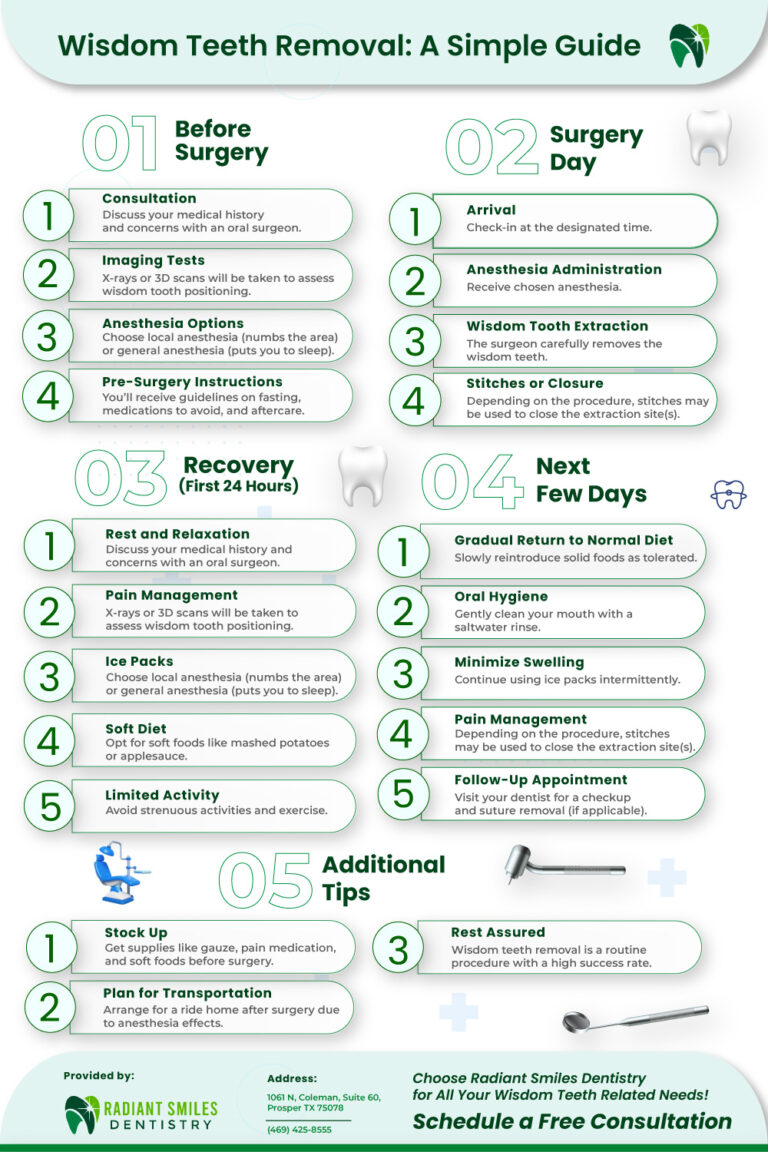The Power of Preventive Dental Care: Understanding Best General Dentistry Practices!
General precautionary measures to improve dental health can have a…

Wisdom teeth, also known as third molars, typically emerge between the ages of 17 and 25. However, they often cause various complications, leading to their removal. Here are the main reasons why wisdom teeth are extracted:
Dissolvable stitches are commonly used to close the incisions and promote healing. Gauze pads may also be placed in the mouth to control bleeding.

1) Does everyone need their wisdom teeth removed?
2) What should I expect during the wisdom teeth surgery?
3) Is wisdom teeth removal painful?
4) Can I drive myself home after the surgery?
Wisdom teeth removal is a common dental procedure that can help prevent complications and maintain oral health. By understanding the process, preparing adequately, and following post-operative care instructions, you can ensure a smoother recovery. If you have any concerns or questions, consult with your oral surgeon, who will guide you through the entire process.
Wisdom teeth got you worried? Experience pain-free wisdom teeth removal in Prosper, Texas at our top-rated dental clinic.
General precautionary measures to improve dental health can have a…
Root canal treatment is a dental technique pointed...
Root canal treatment is a dental technique pointed...